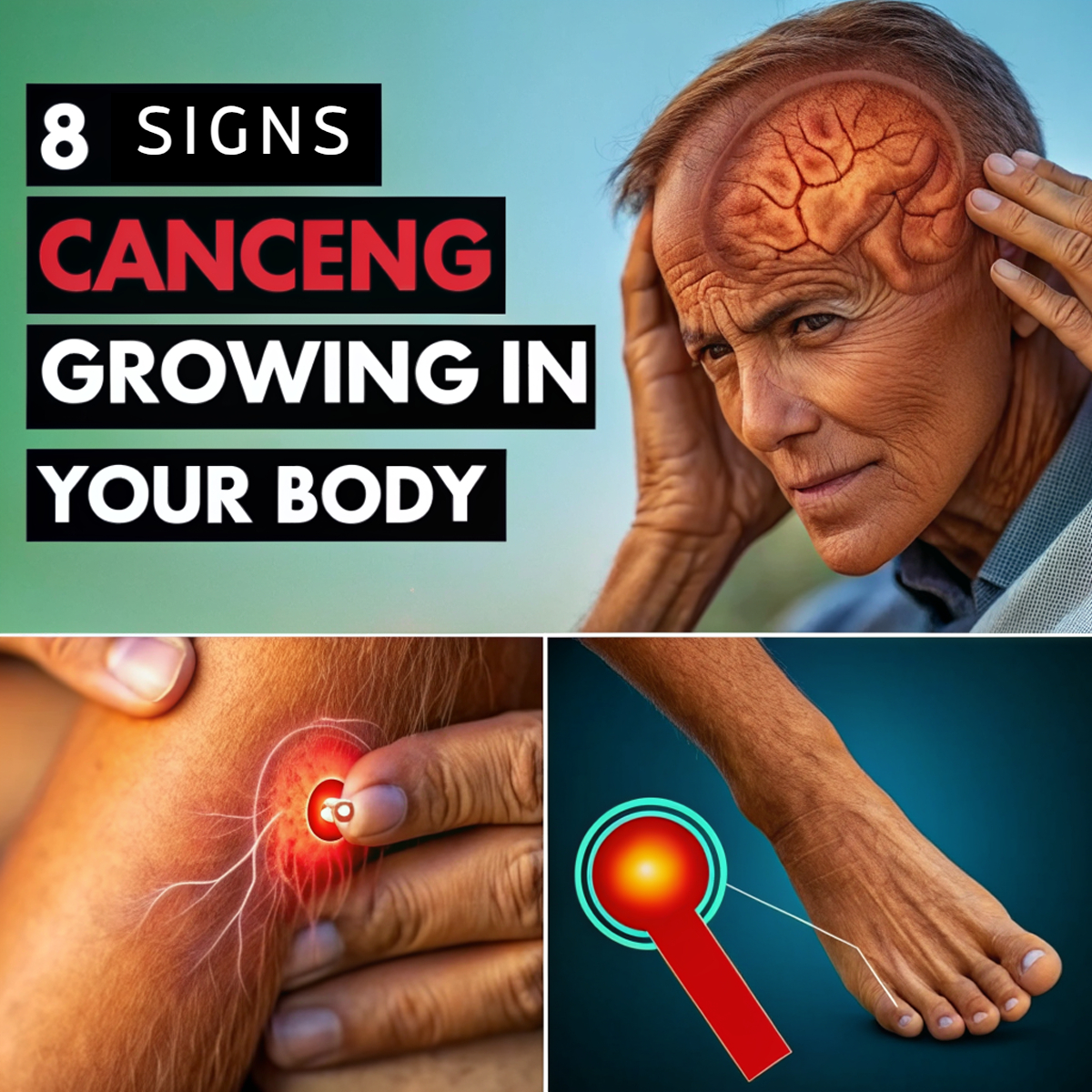Cancer often develops silently, but your body may give you early warning signs. While these signs don’t always mean cancer, they should never be ignored — especially if they persist or worsen over time.
Here are 8 potential signs of growing or developing cancer in your body:
⚠️ 8 Warning Signs of Growing Cancer
1. Unexplained Weight Loss
-
Losing 10 pounds or more without trying can be an early sign of cancers like pancreatic, stomach, lung, or esophageal.
-
Cancer cells use up a lot of energy and may disrupt metabolism.
2. Persistent Fatigue
-
Not just tired — this is deep, ongoing exhaustion that doesn’t improve with rest.
-
Common in leukemia, colon, or stomach cancer due to internal bleeding or cell changes.
3. Lumps or Thickening Under the Skin
-
New lumps in the breast, neck, testicles, armpits, or groin may be a tumor.
-
Always check if a lump is painless but growing.
4. Changes in Skin
-
Darkened, yellowed, or reddened skin
-
Non-healing sores
-
New or changing moles (size, shape, color, bleeding) — could indicate melanoma
5. Chronic Pain (with No Clear Cause)
-
Long-lasting pain that doesn’t respond to treatment, especially in the:
-
Back (possible bone or ovarian cancer)
-
Head (possible brain tumor)
-
Abdomen (possible liver, colon, or pancreatic)
-
6. Persistent Cough or Hoarseness
-
Lasting more than 3 weeks, especially with blood in sputum
-
Can be a sign of lung, throat, or thyroid cancer
7. Changes in Bowel or Bladder Habits
-
Blood in stool or urine
-
Long-term constipation or diarrhea
-
Unusual frequent urination or painful urination
-
May indicate colon, prostate, bladder, or kidney cancer
8. Unusual Bleeding or Discharge
-
Vaginal bleeding between periods or after menopause (possible cervical or uterine cancer)
-
Nipple discharge (breast cancer)
-
Bleeding from rectum, urine, or coughing up blood
🔍 When to See a Doctor:
If you notice one or more of these signs persisting for more than 2–3 weeks, it’s time to:
-
Get screened
-
Ask for blood tests or imaging
-
Follow up with a specialist if advised
✅ Early detection can save lives. Many cancers, if caught early, are highly treatable — even curable.
